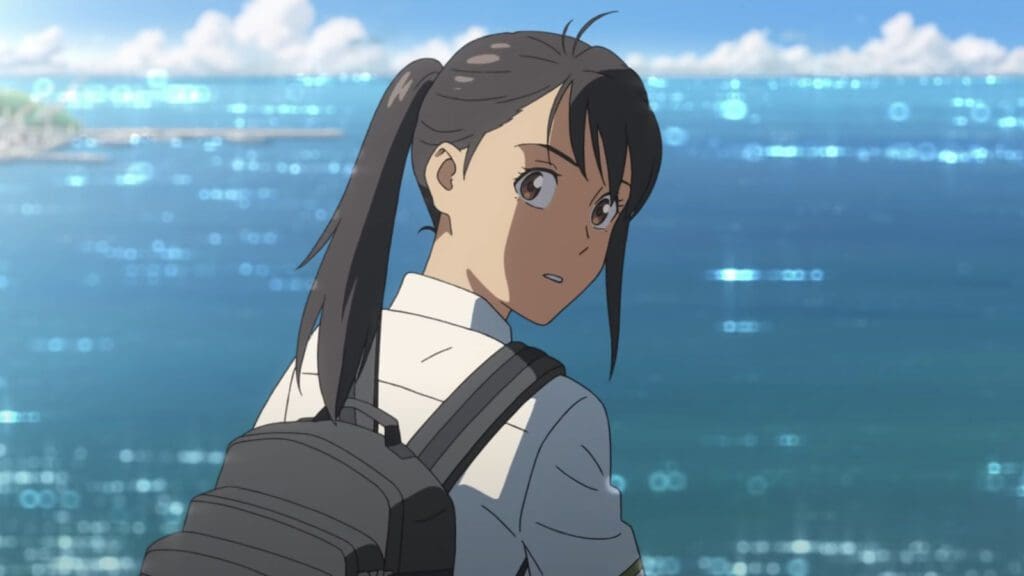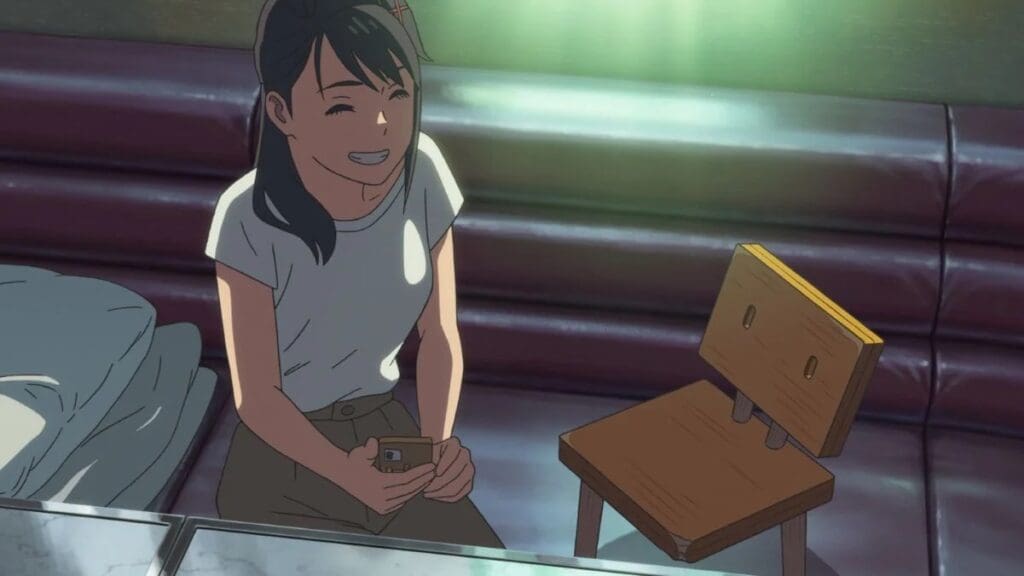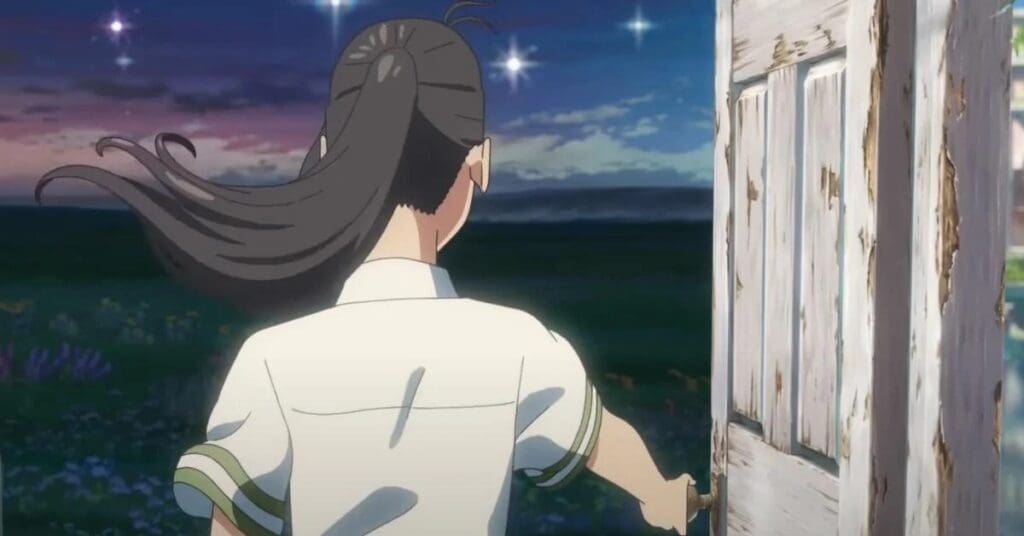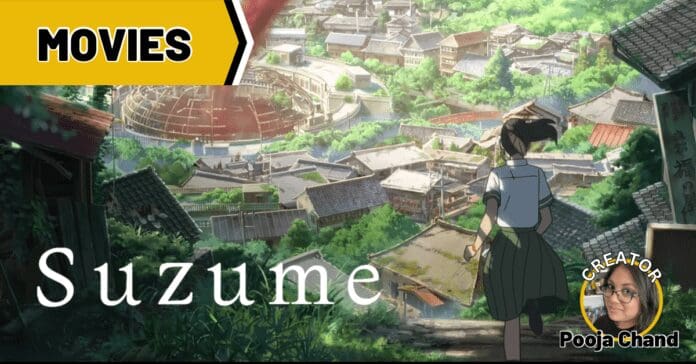Share this
Japanese animator, Makoto Shinkai (Your Name, and Weathering With You) has returned with another beautifully animated film, Suzume. The movie follows the story of Iwato Suzume, a young high school girl whose life gets flipped upside down when she accidentally unleashes a string of supernatural beings that become the cause of massive earthquakes across Japan. In order to save her country, Suzume must embark on a journey to prevent further disaster, while also being forced to confront her past.
Read Also: ‘A Silent Voice’: 5 Years Later, It’s Still Capturing the Hearts of Audiences
Suzume is a film that is best seen with as little information as possible, so no need to worry about spoilers here. With that in mind, it’s important to say right off the bat that this film is one that needs to be seen by everyone. Whether or not you watch anime does not impact the level of enjoyment of the film, but it’s certainly a wonderful gateway into the beauty of anime and the stories that can be told.

The story of Suzume is dangerous and yet beautiful, and feels as if it’s out of this world. And yet, there is a universal relatability that is weaved throughout the film. At times, it can appear mildly convoluted but by the end of the film, you realize this is done intentionally so as not to reveal all the secrets the movie has to offer.
Much of these secrets are tied in with the development of our main character as she travels across Japan, with each stop bringing her closer to her goal as well as to her past that she doesn’t quite comprehend. There are several supporting characters that help push the story along in a way where it doesn’t feel like we’re sitting in one spot for too long or that the story is just dragging along. Instead, we come across characters who are around for the whole journey, some who show up later toward the finale, and some whose presence pops up just for a little bit before Suzume is on her way again.

As mentioned before, even if you’re not entirely familiar with anime, Suzume is an odd yet wonderful introduction into the art style and storytelling. Even with a serious plot, there are several comedic moments that are slipped in throughout the film, almost as if to remind us to enjoy the film with laughter as well. With its peculiar choices in character design and plot, it indulges heavily in the things that set anime apart from other animation: the bizarre, the weird, the unknown.
The animation of this film in particular is breathtaking, and it truly felt as if I’d entered into a dream with mildly nightmarish fantasy elements. This is paired perfectly with an exciting and chilling score that involved a collaboration between composer Kazuma Jinnouchi and Japanese rock band, Radwimps. Just hearing the echoes of the vocals from the film’s main theme provides a surreal energy in such a fantasy-based world, and it hasn’t left my mind since.

Thematically, there is a mixture of gentle and startling interpretations of the many ways love, anger, and grief can exist in a single place or within a single moment. According to Shinkai, the film is heavily influenced by the everlasting effects of Tōhoku earthquake and tsunami*, also known as “3.11” which is in reference to the disaster occurring on the afternoon of March 11, 2011. Even now, the effects of that day are still present, with several citizens still left displaced or missing. It’s heartbreaking to realize how much the trauma of these events has spread across Japan and remained a permanent part of people’s lives. And yet, through Shinkai’s Suzume, we are able to connect, sympathize, and maybe even empathize through a story of hope and perseverance in spite of tragic losses.
Suzume is a film that speaks to our strengths even in times where everything feels hopeless or lost. With Makoto Shinkai at the helm, it’s hard not to fall prey to our emotions while watching his films, but that is a good thing. If nothing else, this film will open your eyes to not just brilliant animation, but also the way art is influenced by life itself. And ultimately, if there’s a movie you need to watch this year, it’s Suzume.
Samosa Rating:
Suzume receives 5 out of 5 Samosas.
Suzume is now playing in theaters.
Runtime: 2h 2m
*If you’d like to know more about Makoto Shinkai’s inspiration for Suzume, we highly recommend reading Crunchyroll’s feature article here.
And for more information about the 3.11 Tōhoku Earthquake and Tsunami, you can watch NHK World Japan’s documentary about the events that unfolded that day. Viewer discretion is advised.


